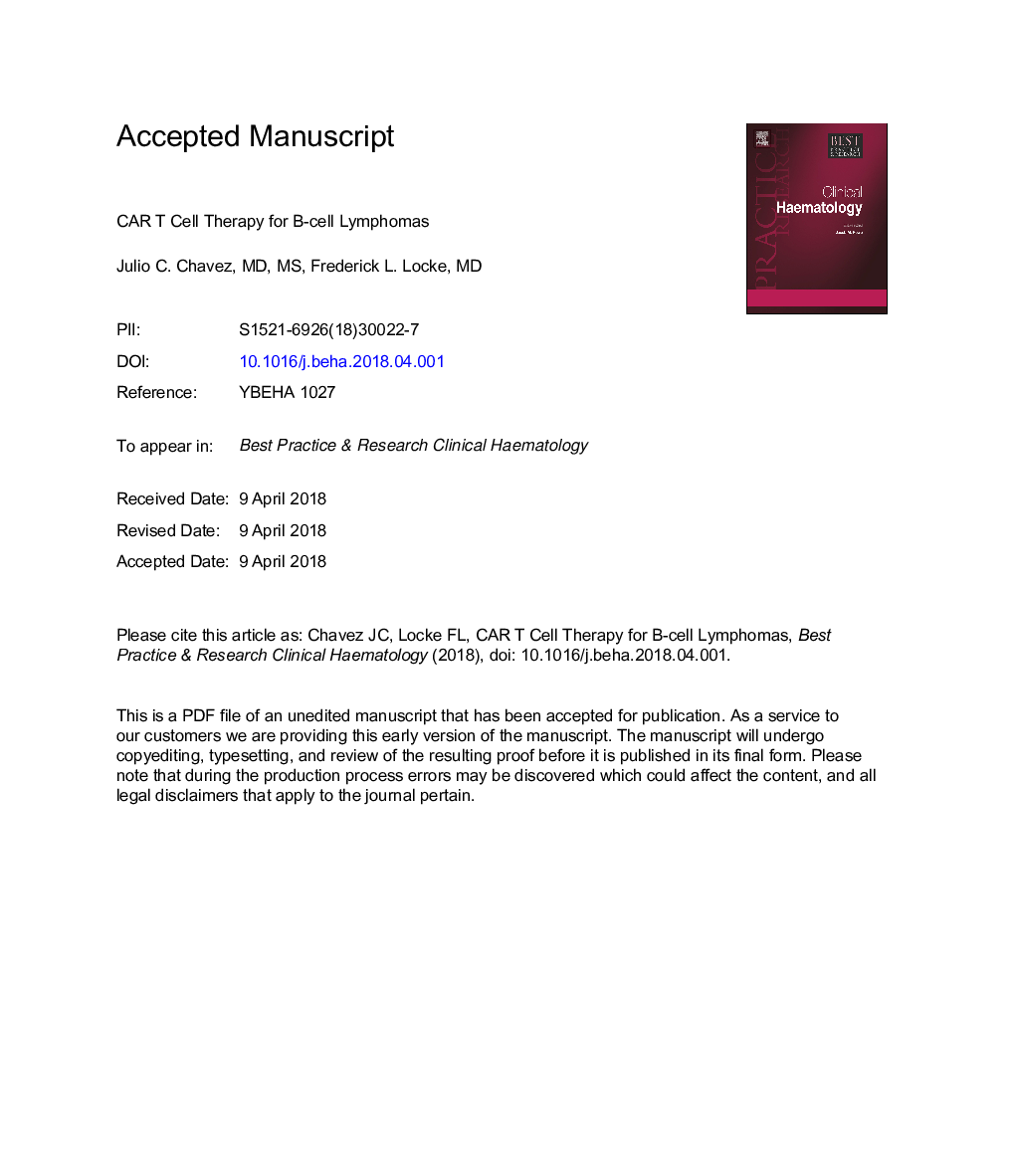| Article ID | Journal | Published Year | Pages | File Type |
|---|---|---|---|---|
| 8428937 | Best Practice & Research Clinical Haematology | 2018 | 37 Pages |
Abstract
B-cell non-Hodgkin's lymphoma (NHLs)is a very heterogonous malignancy with diffuse large B-cell lymphoma (DLBCL) and follicular lymphoma (FL) as the most common subtypes. Standard treatment with anti-CD20 based chemoimmunotherapy is usually very effective for disease control. However a significant proportion of patients with high-risk features (double hit lymphoma, transformed lymphomas or early relapses) will become refractory to standard therapies and will have limited alternatives for cure. Adoptive therapy with chimeric antigen receptor (CAR) T-cells is a new paradigm for effective treatment of poor prognosis lymphomas. Here we review the biology of poor risk DLBCL and FL, the rationale for CAR T-cell therapy in malignant lymphoma and the efficacy/toxicity profile of CD19 directed CAR T cell therapy for DLBCL and FL from early single center studies to multicenter/global clinical trial with different CAR T cell constructs.
Related Topics
Life Sciences
Biochemistry, Genetics and Molecular Biology
Cancer Research
Authors
Julio C. Chavez, Frederick L. Locke,
